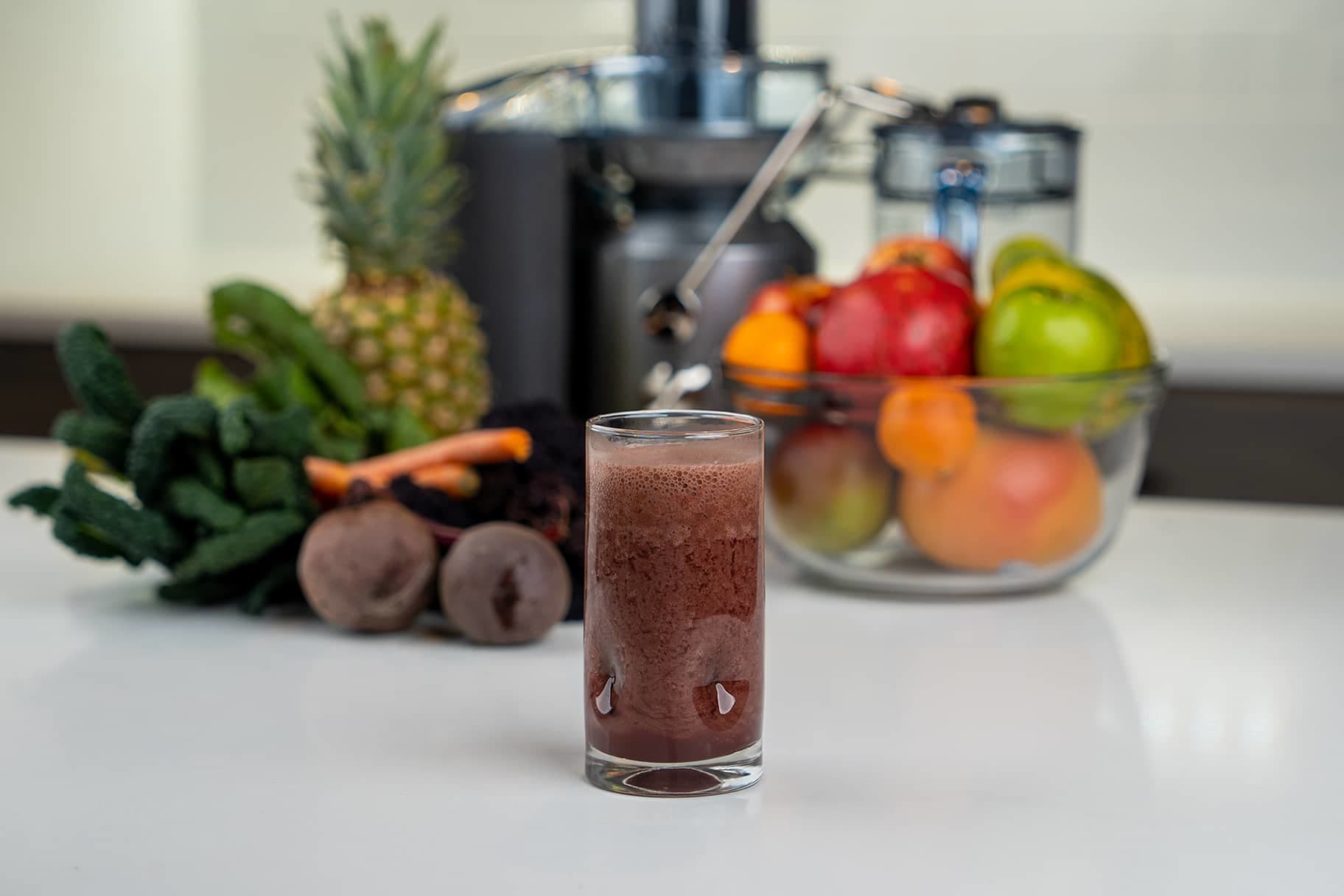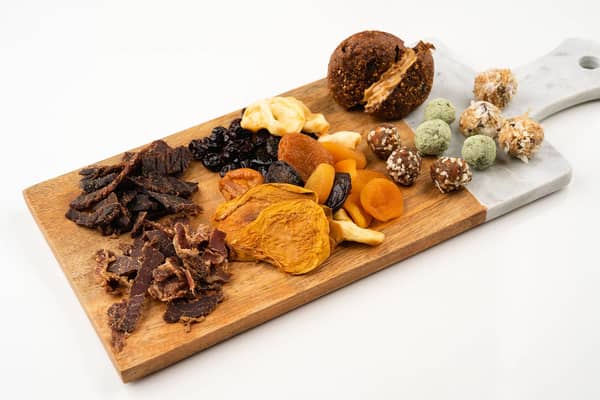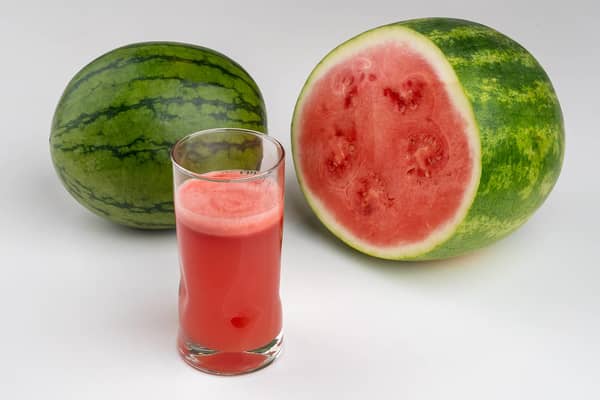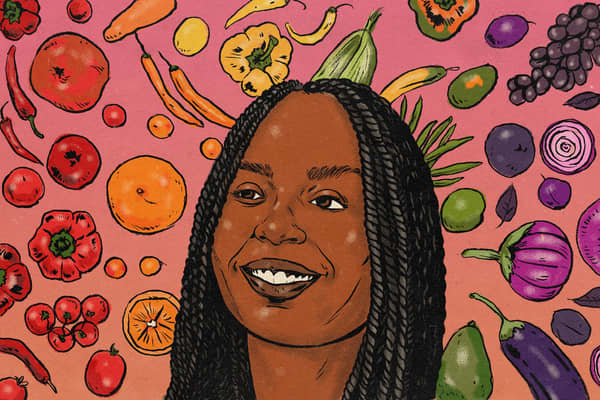Is Juicing Healthy? Registered Dietitians Explain
Nutrition
Nutrition experts pinpoint the benefits of juicing—and debunk unbacked claims.

Trends orbit in and out of the health and wellness space, and juicing is no exception. The practice has continued to gain (and lose) popularity over the years. And while there are benefits to juicing, there are other popular claims about the practice that aren't scientifically proven.
For the uninitiated, juicing is exactly as it sounds. "It is the act of extracting or removing the juice from a fruit or vegetable and often discarding the rest of the produce, including the pulp, fibre, seeds and skin", said Maya Feller, MS, RD, CDN. But, is juicing healthy—and do the touted benefits live up to the hype?
Below, Feller and Brittany Modell, MS RD, CDN, spill all the details, including the benefits of juicing and potential risks to note.
Is Juicing Healthy?
The short answer: Yes, juicing is healthy. However, there are a few pitfalls to know.
"There are many cultures that have been juicing as a part of their foodways for hundreds of years", Feller said. "Juicing can be a way to deliver a quick and efficient shot of micronutrients and hydration".
(Related: Dietitian-approved Foods That Can Help You Rehydrate After an Outdoor Workout)
That said, both Feller and Modell noted that juicing is not meant to be the sole source of nutrition. Instead, it should complement your eating pattern as juices don't provide sufficient calories or nutrition on their own. Feller said the main issue with juicing is that it doesn't have a balanced profile of macronutrients, carbohydrates, fats and proteins.
"Macronutrients are the nutrients we need to consume in large quantities in order to survive", Feller said. "The macronutrient profile of juice is mainly carbohydrates; therefore, juicing alone lacks protein and fat. Juicing also removes the fibre, which is an incredibly powerful component of many plant foods".
In addition to helping keep you feeling full and supporting digestive health, fibre offers many health benefits including reducing the risk of heart disease, diabetes and hypertension.
3 Potential Benefits of Juicing
1.It's a Quick Way to Consume Nutrients
Modell said that one major benefit of juicing is it's an easy, and often convenient, way to incorporate fruits and vegetables into your diet. You can do this by either making juices at home or purchasing bottled juices. Both are good options, Modell said. So it comes down to preference and budget. If you go the shop-bought route, Feller encouraged reading the nutrition facts label and being mindful of unnecessary added sugars.
2.Juicing Is Rich in Vitamins and Minerals
Juicing (aka, the act of putting fruits and/or vegetables in a juicer) also provides a concentrated source of vitamins and minerals. Switching up the fruits and vegetables included in the juice will provide a variety of nutrients, each of which can offer their own unique benefits.
"For example, beet juice is high in nitrates which have a beneficial effect on blood pressure, while cranberry juice is a powerful tool in preventing urinary tract infections and tart cherry juice has been used for recovery after intense and extended physical activity", Feller said.
However, Modell noted that one type of juice is not superior or "healthier" than others as all foods provide benefits.
3.It Provides Hydration
One of the benefits of juicing you can count on: hydration.
"Juices are mainly water and contain some carbohydrates, which can help to hydrate the cells more efficiently than plain water alone", Feller said.
(Related: This Is Exactly How Much Water You Should Drink Every Day, According to Experts)
Debunking Certain Claims
There are various too-good-to-be-true claims about the benefits of juicing. Many of which, Feller said, are not backed by legitimate research.
For instance, Feller and Modell both said there isn't any evidence that juicing enhances the absorption of nutrients from fruits and vegetables compared to consuming them whole. The idea that juicing helps detox and cleanse the body is also a myth.
Possible Risks of Juicing
Although juicing comes with its benefits, it also has a few risks worth noting. For one, freshly made juice can be a breeding ground for bacteria that can cause food-borne illness, if not consumed straight away.
"If you make juice at home, only make as much juice as you can consume at once. Harmful bacteria can grow quickly in freshly squeezed juice", Modell said. "When buying commercially produced fresh juice, try to opt for pasteurised products to limit the possibility of harmful bacteria".
Feller also warned against consuming high amounts of juice at once as the fructose (aka sugar) in the juice can loosen bowel movements and cause diarrhoea. She also noted that juices can potentially interact with medications. For instance, grapefruit juice may interfere with certain medications for cholesterol, high blood pressure and anxiety. So if you're thinking of adding juices to your diet, make sure you speak to your medical provider first about possible interactions.
Juicing may also not be a great option for people with blood sugar issues, such as those with diabetes. "Having just juice as a meal without the incorporation of protein or fat can cause a rise in blood sugar and will not keep you full for long", Modell said. In general, having consistently high (or spiked) blood sugar increases the risk of serious health complications.
The Bottom Line
Juicing can be a nice addition to meals, as it's a great way to sneak more fruits and vegetables into your day. Feller said some folks she works with opt to drink one, all-green juice daily, while others like to drink a juice made from a mix of greens and fruits a few times per week.
"The key is to find the balance of fruits and vegetables that you [like] and to remember that they are a complement to the pattern of eating, not a meal", Feller said. And if juicing isn't your thing, that's cool too. Modell said if you're getting sufficient nutrition from your regular diet, there's no need to drink juices to satisfy your nutritional needs.
Words by Jessica Estrada





